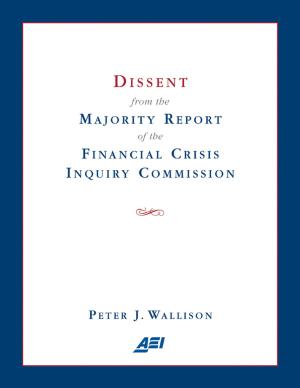Safety, Liberty, and Islamist Terrorism
American and European Approaches to Domestic Counterterrorism
Nonfiction, Social & Cultural Studies, Political Science, International, Treaties, International Security, International Relations| Author: | Rafael L. Bardají, Ignacio Cosidó, Eric Gujer, Tom Parker | ISBN: | 9780844743509 |
| Publisher: | AEI Press | Publication: | August 16, 2010 |
| Imprint: | AEI Press | Language: | English |
| Author: | Rafael L. Bardají, Ignacio Cosidó, Eric Gujer, Tom Parker |
| ISBN: | 9780844743509 |
| Publisher: | AEI Press |
| Publication: | August 16, 2010 |
| Imprint: | AEI Press |
| Language: | English |
The terrorist attacks of September 11, 2001, produced a revolution in domestic security in the United States. The Bush administration responded quickly by aggressively enforcing existing laws, sponsoring new legislation, overhauling domestic intelligence, and employing the president's executive power in ways that drew criticism from civil libertarians on both the left and right. Many hoped that the succeeding administration would adopt a more 'European' approach to domestic security-an approach typically understood to be more compatible with the rule of law and friendlier to civil liberties. But Europe has suffered major terrorist attacks as well-in Madrid in 2004 and London in 2005-and terrorist plots continue to plague America's European allies. Has this shared experience engendered a common approach to domestic security, or, as many believe, is there a transatlantic divide in counterterrorism strategy? In Safety, Liberty, and Islamist Terrorism: American and European Approaches to Domestic Counterterrorism, Gary J. Schmitt leads a group of security and intelligence experts in analyzing the domestic counterterrorism regimes of the United Kingdom, France, Spain, Germany, and the United States. The author's in-depth analysis provides a unique window into the similarities and differences among the counterterrorism efforts of these major democracies and explores the possibilities (and limitations) of applying one country's lessons to another. Safety, Liberty, and Islamist Terrorism concludes with a broad assessment of the changes made to U.S. counterterrorism strategy since 9/11 in comparison with current European laws, institutions, and practices, and with policies instituted during past American domestic security crises. The analysis uncovers evidence of a shared strategic imperative: preemption. For the United States, preemption occurs both at home and on battlefields abroad, while for Europe, preemption is primarily a domestic affair, often resulting in laws that allow more aggressive policing of terrorist activity than occurs in the United States. The comparison also yields insights about how the transatlantic community has balanced the need to address the jihadist threat with maintaining civic order at home. Although no country has a perfect record, Schmitt contends that changes made to domestic security policy in response to the terrorist threat have not undermined the United States and Europe's shared commitment to democracy and liberty. 'Certainly, tradeoffs have been made between individual liberties and domestic security,' Schmitt writes. 'But if we take the broad view, we are struck by how minimal those intrusions on our liberties have been, given the threat we face.'
The terrorist attacks of September 11, 2001, produced a revolution in domestic security in the United States. The Bush administration responded quickly by aggressively enforcing existing laws, sponsoring new legislation, overhauling domestic intelligence, and employing the president's executive power in ways that drew criticism from civil libertarians on both the left and right. Many hoped that the succeeding administration would adopt a more 'European' approach to domestic security-an approach typically understood to be more compatible with the rule of law and friendlier to civil liberties. But Europe has suffered major terrorist attacks as well-in Madrid in 2004 and London in 2005-and terrorist plots continue to plague America's European allies. Has this shared experience engendered a common approach to domestic security, or, as many believe, is there a transatlantic divide in counterterrorism strategy? In Safety, Liberty, and Islamist Terrorism: American and European Approaches to Domestic Counterterrorism, Gary J. Schmitt leads a group of security and intelligence experts in analyzing the domestic counterterrorism regimes of the United Kingdom, France, Spain, Germany, and the United States. The author's in-depth analysis provides a unique window into the similarities and differences among the counterterrorism efforts of these major democracies and explores the possibilities (and limitations) of applying one country's lessons to another. Safety, Liberty, and Islamist Terrorism concludes with a broad assessment of the changes made to U.S. counterterrorism strategy since 9/11 in comparison with current European laws, institutions, and practices, and with policies instituted during past American domestic security crises. The analysis uncovers evidence of a shared strategic imperative: preemption. For the United States, preemption occurs both at home and on battlefields abroad, while for Europe, preemption is primarily a domestic affair, often resulting in laws that allow more aggressive policing of terrorist activity than occurs in the United States. The comparison also yields insights about how the transatlantic community has balanced the need to address the jihadist threat with maintaining civic order at home. Although no country has a perfect record, Schmitt contends that changes made to domestic security policy in response to the terrorist threat have not undermined the United States and Europe's shared commitment to democracy and liberty. 'Certainly, tradeoffs have been made between individual liberties and domestic security,' Schmitt writes. 'But if we take the broad view, we are struck by how minimal those intrusions on our liberties have been, given the threat we face.'















